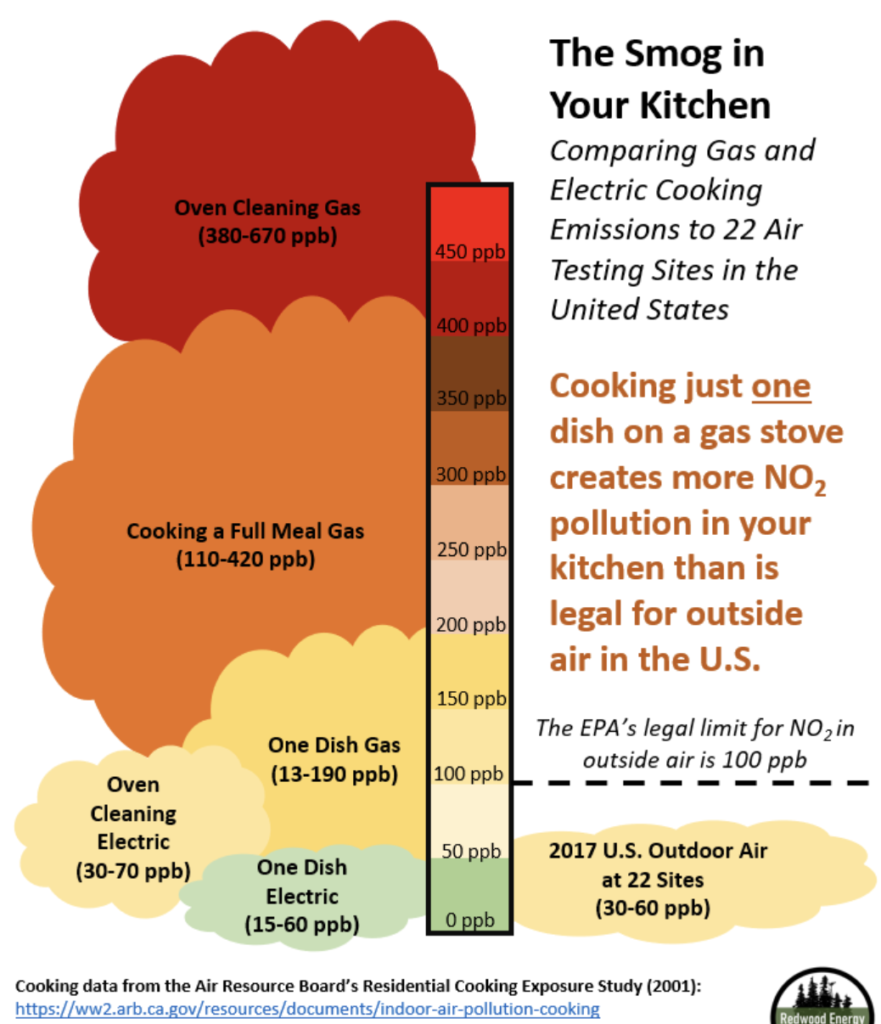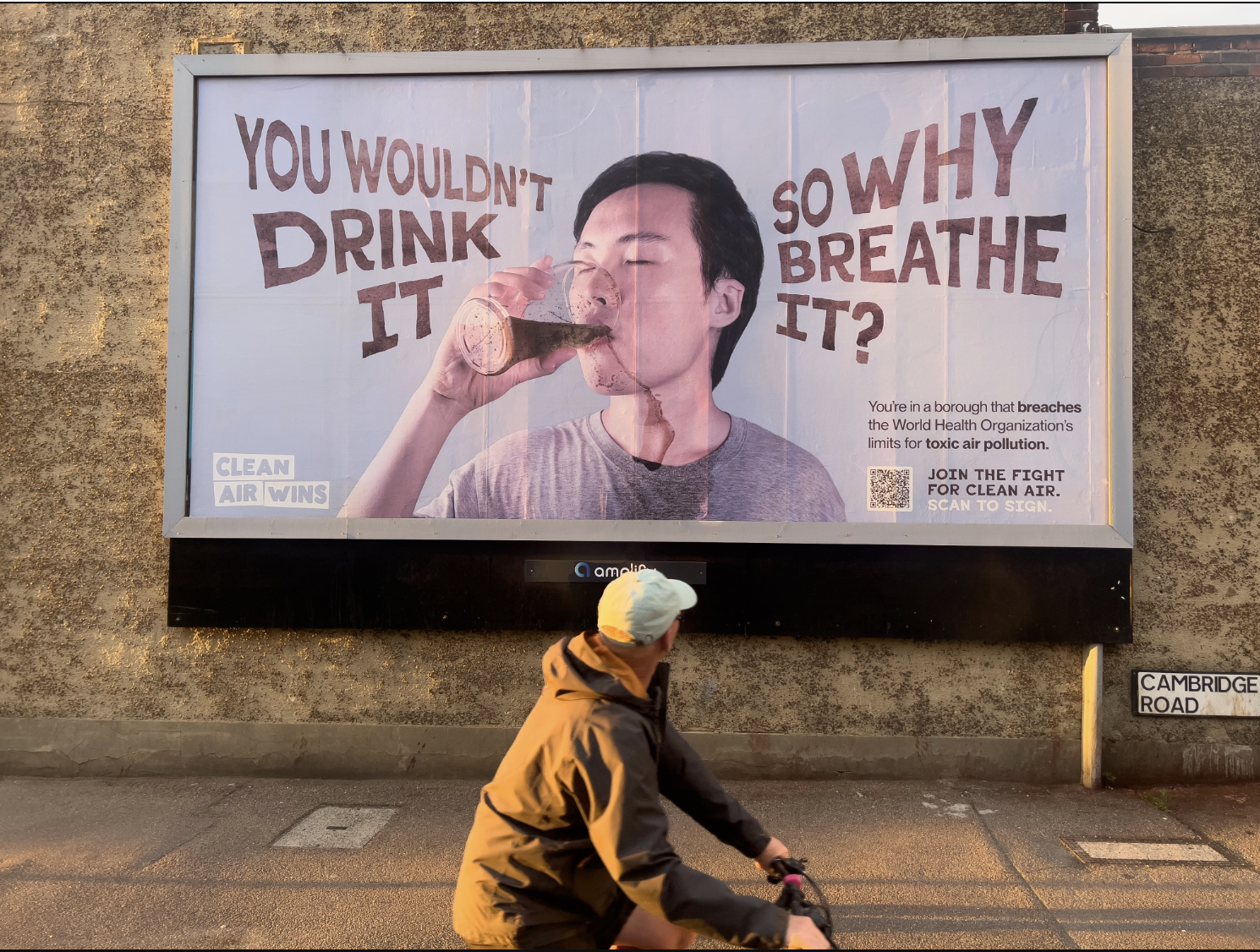I talked to community members about air pollution – theory and some practical ideas about mitigation. First, lets remember the Clean Air Wins campaign up above:
I started with some questions:
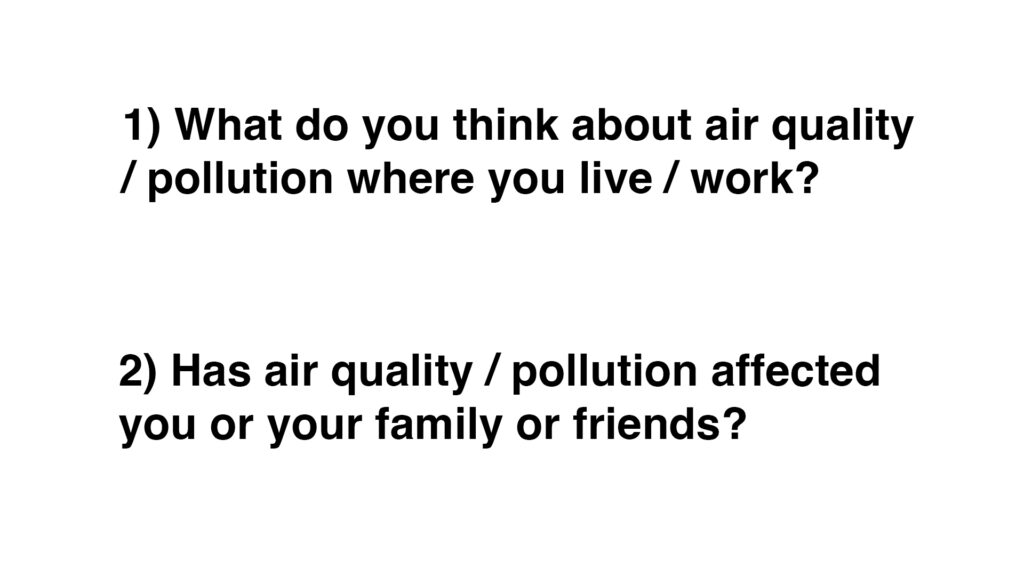
Almost everyone didnt believe they had a pollution problem – not in their area, no, no, no!
I talked about Ella Kissi-Debrah and her mum Rosamund.
Ella lived near the South Circular and died aged 11 from asthma – exacerbated by particulate air pollution.
Ella is the first person to have air pollution listed on her death certificate.
Thanks to her mum Rosamund – who fought for, and succeeded in getting, a repeat inquest for her daughter.

But its not just kids affected by this!
Around 9000 people die from particulate air pollution annually – in the urban pattern shown here.
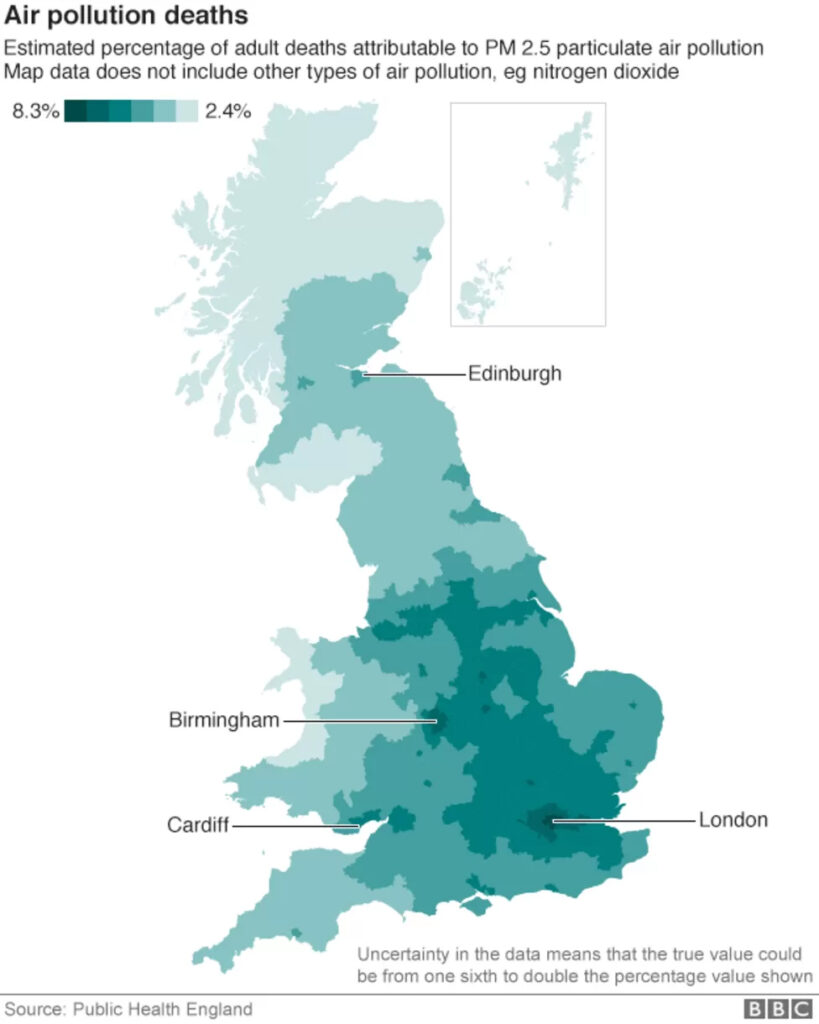
Here below are the many ways that health is affected by air pollution – its bad news throughout everyone’s life:
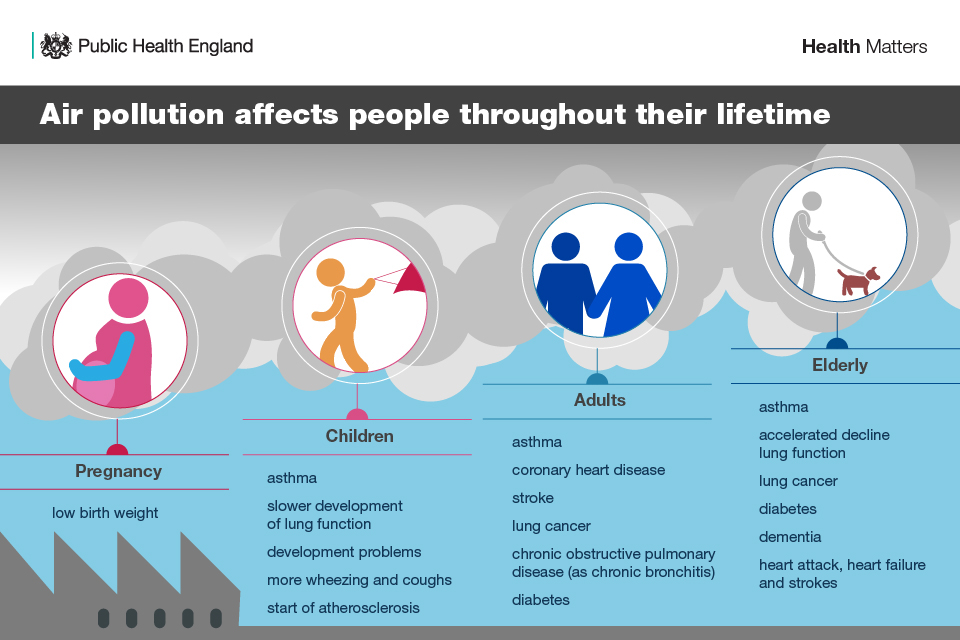
And this below compares the – different – short and long term effects of pollution:

Of course it’s not all particulates.
Here below are the levels of Nitrous oxide as recorded on the building opposite me – with levels well above WHO levels, and even above the ridiculous UK target levels.
Or heres our up-to-the-minute levels. EEK!
Its depressing that the UK sets target levels so dangerously high.
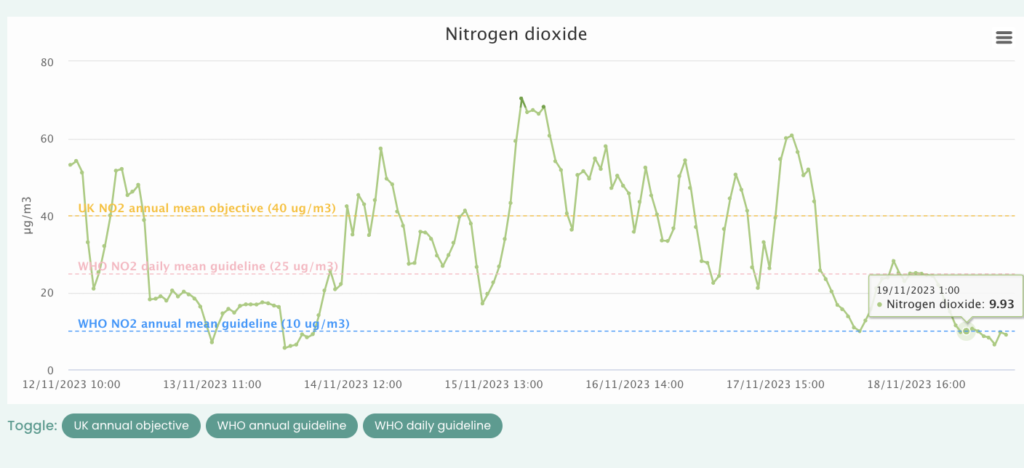
Thankfully, there are some reductions in NO2 locally – as you can see here below.
Although we’re still well over WHO levels.
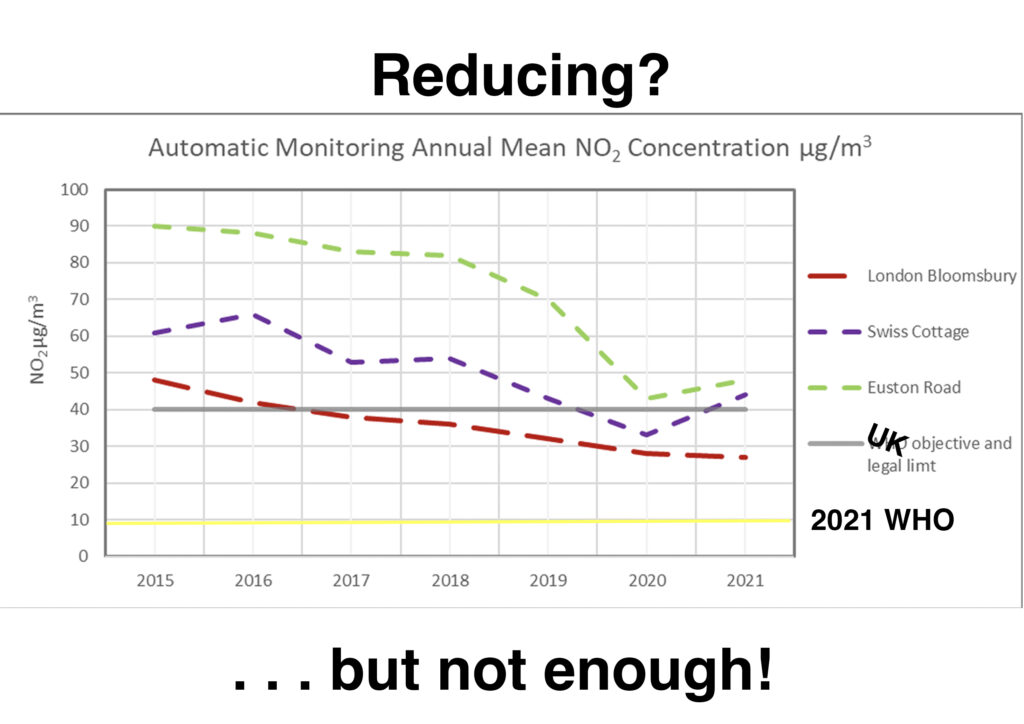
Theres also the tiny particles in Particulate Matter – check out this comparison below with a human hair.
Look for PM10 – mainly from construction – and even smaller PM2.5.
PM2.5 is small enough to cross a placenta – and even cross the blood brain barrier.

This below shows how PM2.5 has more-bad impact on life expectancy than smoking and very very more-bad impact than alcohol, unsafe water, road injuries, HIV and malaria. Even conflict and terrorism has hardly as much bad-impact compared to PM2.5
Why dont more of us know this?
Why doesnt the UK government – and others too – do more about this?!
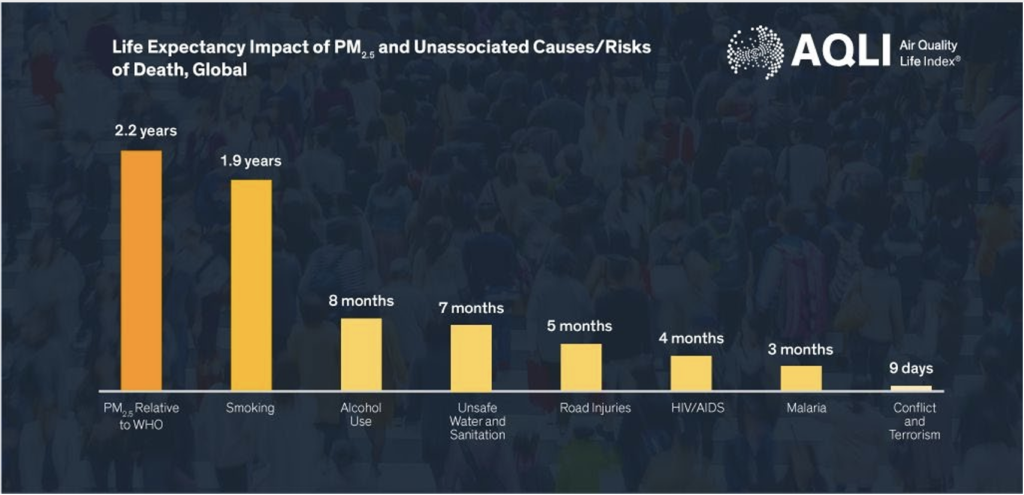
The biggest single source of small particle air pollution in London is wood burning. It’s worse than vehicles!
Check out here below how dirty wood stoves are:

This shows how particles from road traffic have gone down over time.
This follows car design improvements. So it may well go down more.
Though increases in – heavy – electric cars will lead to rises in particles from brake and road wear.
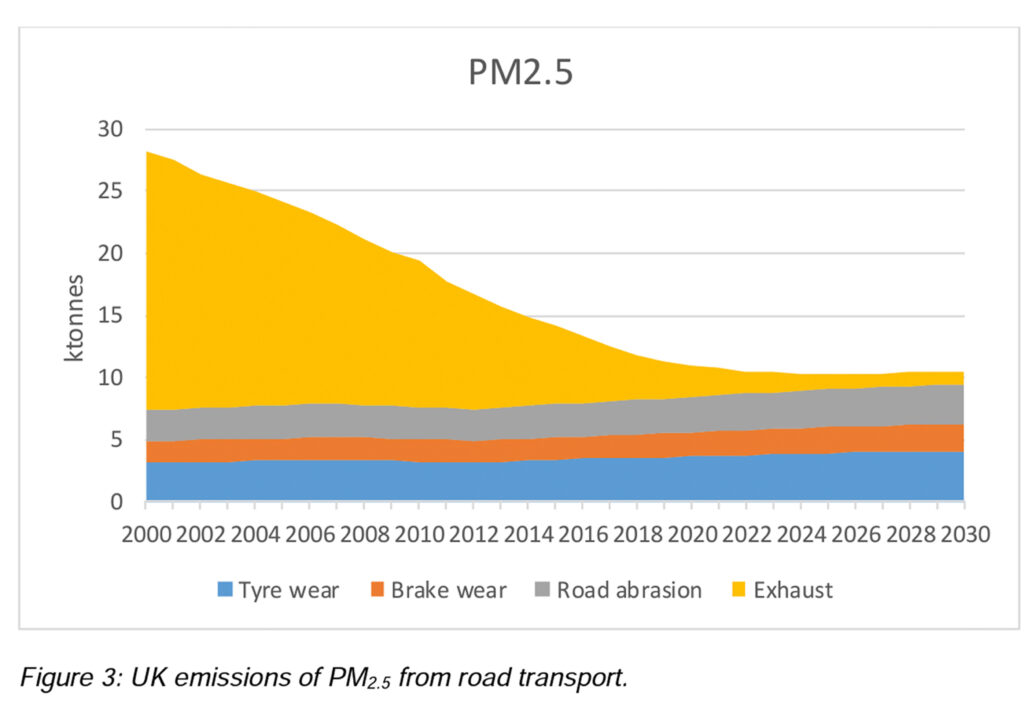
So standing back – here below are the actual sources of air pollution in Camden.
Look how bad-IMPORTANT commercial buildings are!
And the biggest bad-source from commercial buildings in Camden is meat cooking.
How can we change that!?
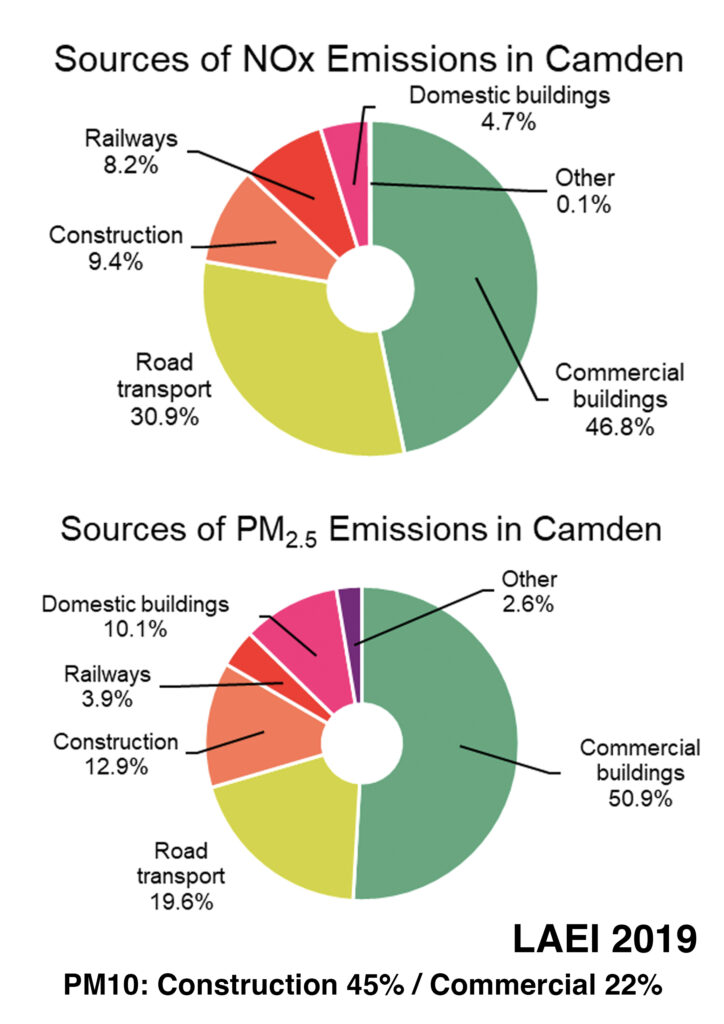
Road transport is the next biggest problem area.
But Britons are very accepting of driving-related risk – so most politicians wont tackle it!
In one example: “75% of people agreed with the statement: ‘People shouldn’t smoke in highly populated areas where other people have to breathe in the cigarette fumes.’ But when just two words were changed – ‘people shouldn’t drive in highly populated areas where other people have to breathe in the car fumes’ – only 17% agreed.”
And: “Similarly, while only 37% of people thought the police needed to take action if someone left their ‘belongings’ in the street and they were stolen, with the word changed to ‘car’ it rose to 87%”. In another question, 61% of people agreed that risk was “a natural part of driving”, whereas just 31% agreed when “driving” was changed to “working”.
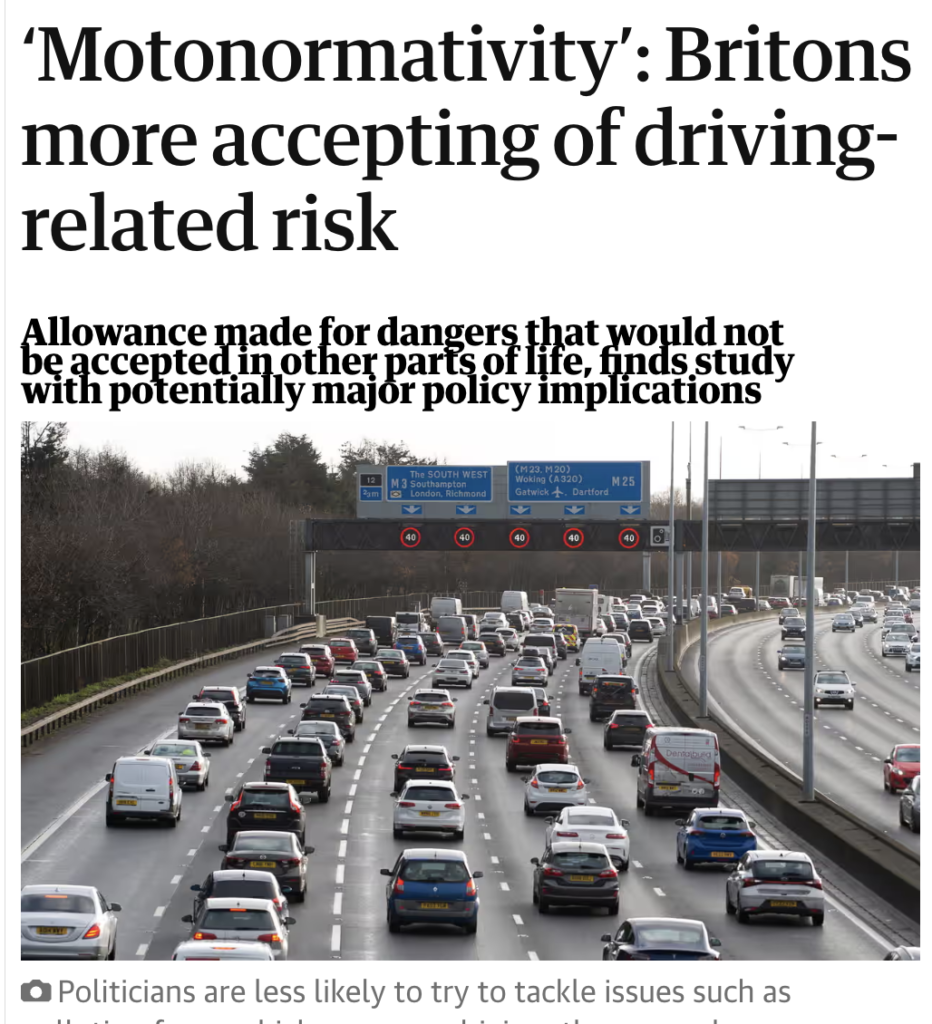
For driving, if you can do only one thng – please dont ‘idle’ in your car.
Switch off for cleaner air!
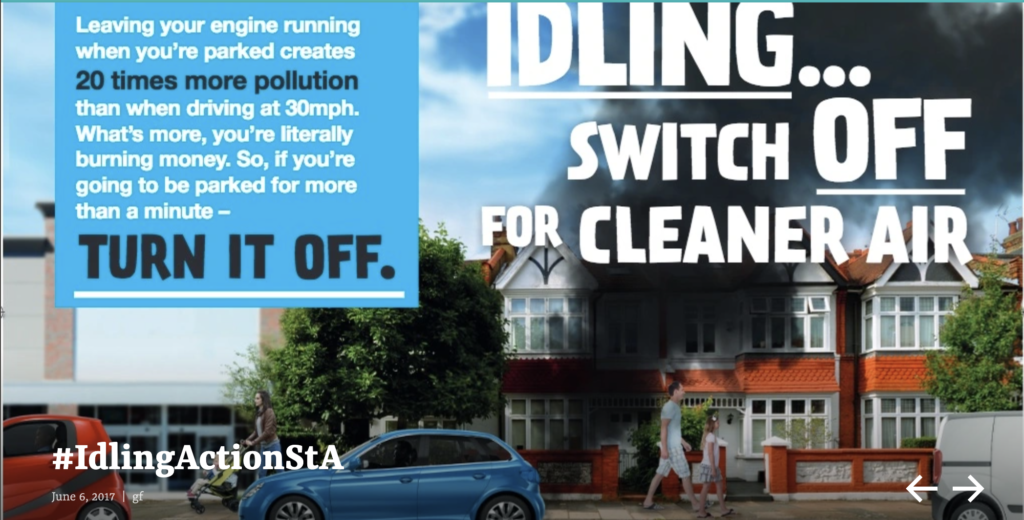
Here are the figures – look how bad idling can be:

And look here about school streets. 25% of morning rush traffic is parents on the school run.
We need to break the idea that kids cant walk to school with the air so dirty – when it’s parents drivng their kids to school that are making the air dirty

If you want to know about the worst local air quality as it happens, then sign up with https://www.airtext.info/ , and you will receive warnings when local levels of air pollution are raised. With action recommendations.
I suggest you do this as a minimum, then choose what else you might want to explore.
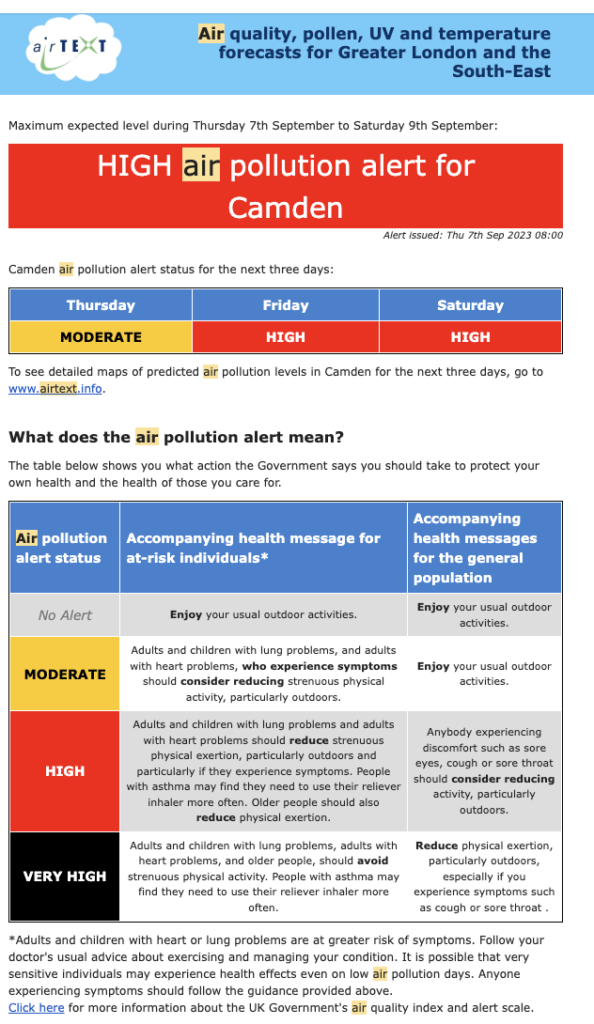
You could put your postcode into https://addresspollution.org/, and you will receive an overall rating for Local air pollution. And if you click lower down, you can get estimates for some personalised Health risks in your local area.
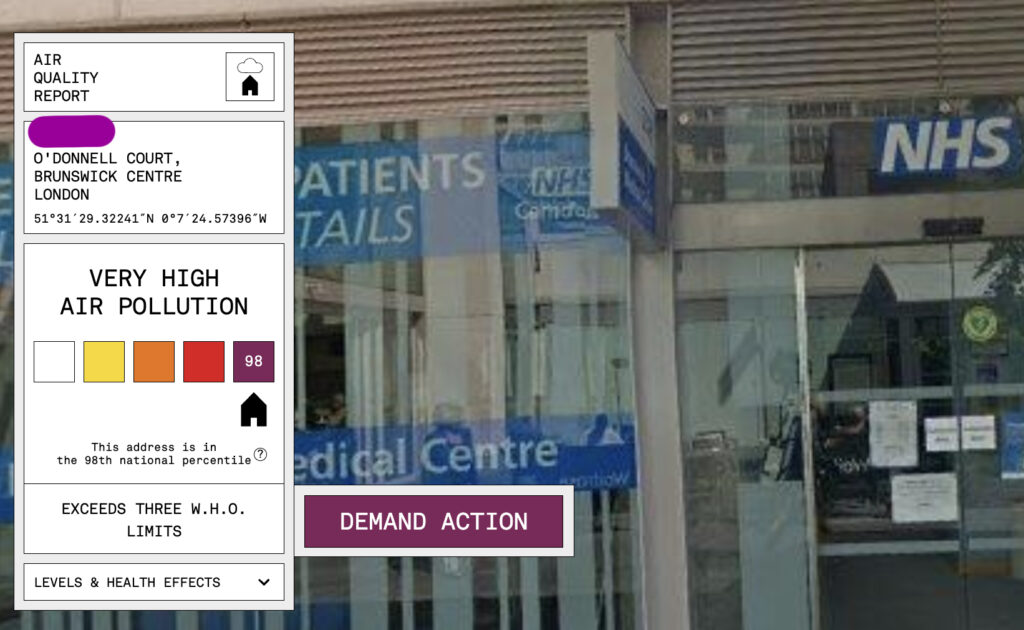
like this:
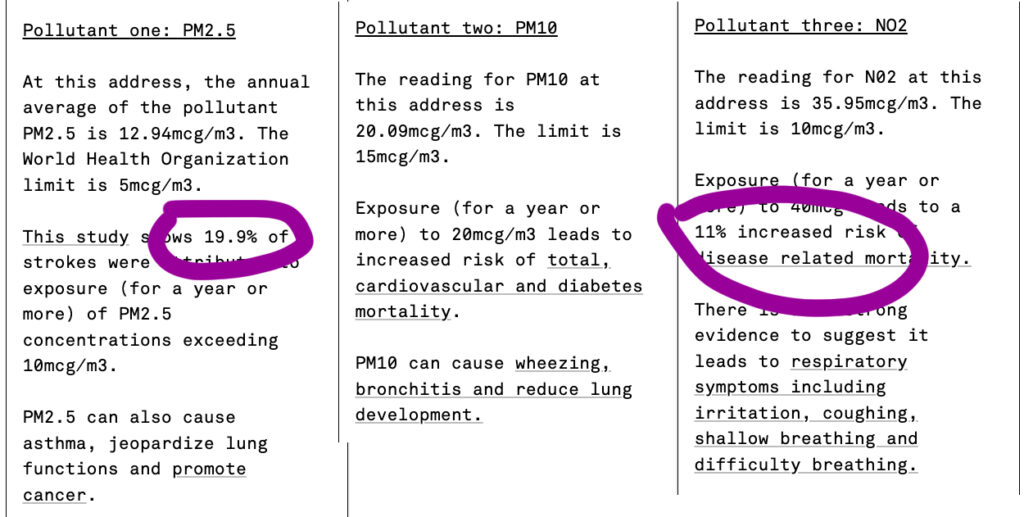
The website https://right-to-know.org/ also gives information about other sorts of pollution, including summer heat, night light, noise, and deprivation. Scroll down to submit your postcode.
Right-to-know averages out results from the top 10% worst results – which “creates a more accurate health risk narrative, particularly for vulnerable populations”.
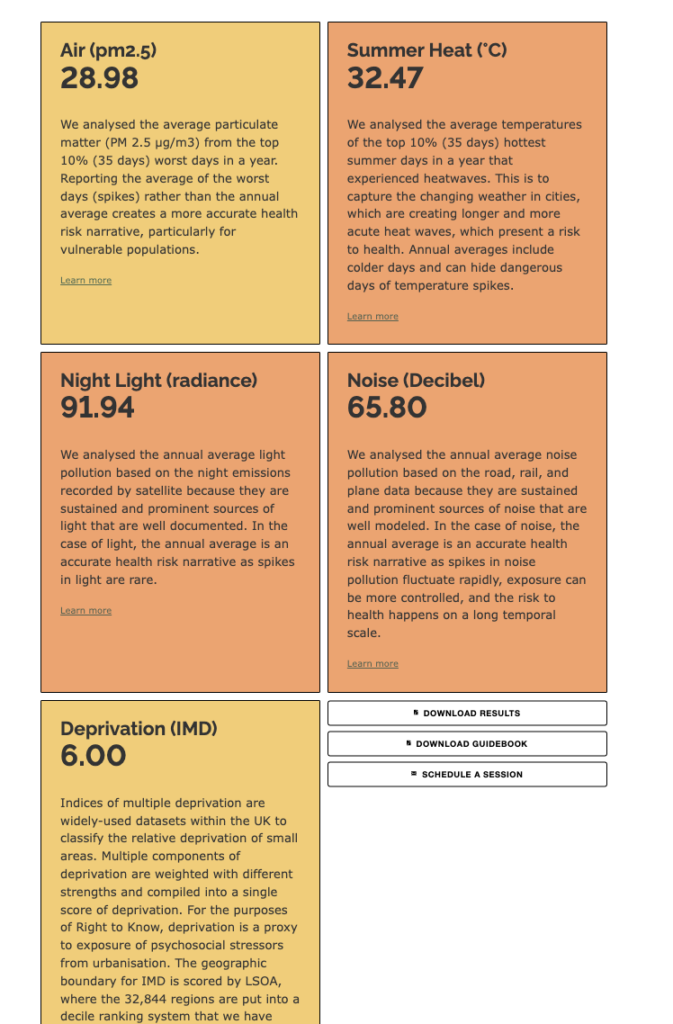
If you live in Camden, you can see real-time super-localised information – generated using artificial intelligence at https://www.airscape.ai/
This includes your current situation; a view of the last seven days; and a longer term view.
You can also work out the least polluted way to walk between two places in Camden. This will change depending on current local pollution levels – check it out every time.
Here’s some hints about working with Airscape data: https://community.breathelondon.org/c/brunswick-tenants-and-residents-association/airscape and https://community.breathelondon.org/c/brunswick-tenants-and-residents-association/learning-about-airscape-in-practice

So here’s a re-run of my initial questions.
I’m hoping that if you thought there isnt an air pollution problem before, you might’ve changed your mind now!
And maybe you’ve also had a rethink about the horrifying breadth of ways air pollution might affect you or your family?
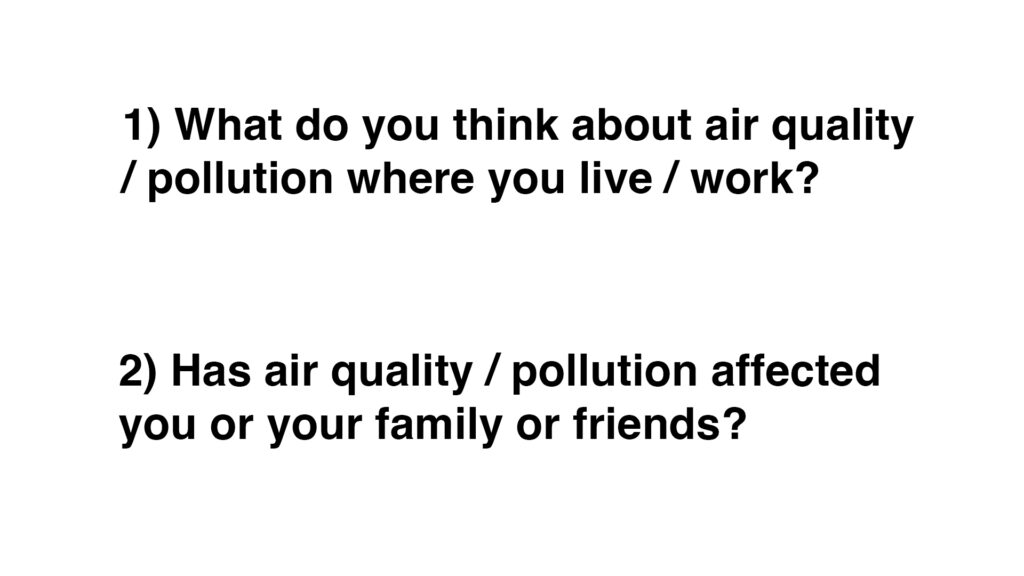
Climate justice is a key issue. Its the poorest countries in the global south that are having the biggest problems. Due to the many decades of pollution from the global north.
Which is so unfair!
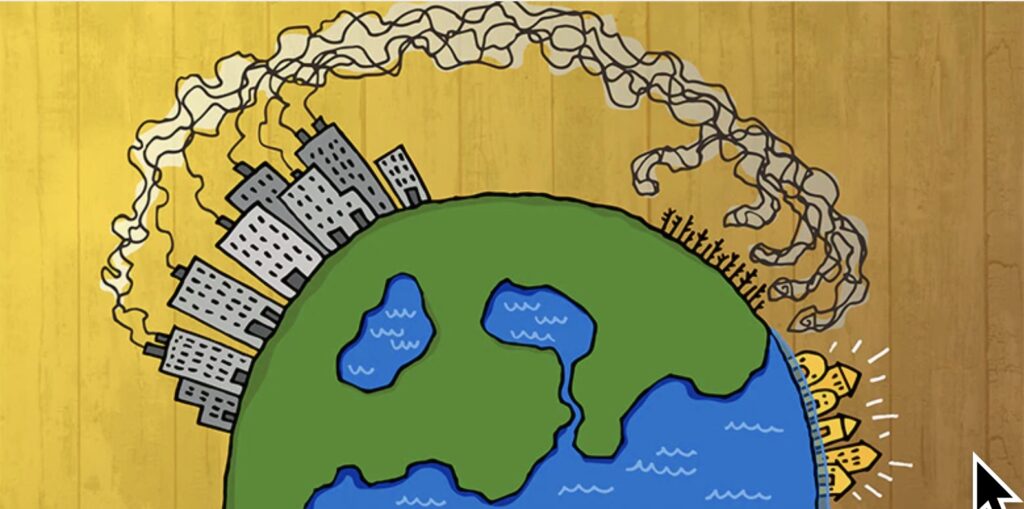
its not just north-south. Within the north and south, its richer people who cause the biggest problem in terms of CO2 emission. Though they have more reserves to cope with effects of climate chaos.
I know we’re having a cost of living crisis in the UK.
But the vast majority of us are still in the richest 10% of the world.

Internal air pollution can be much worse than that outside
And its much easier for YOU to control what goes on inside your own house
Here are some of the pollution sources INSIDE – with more details here.
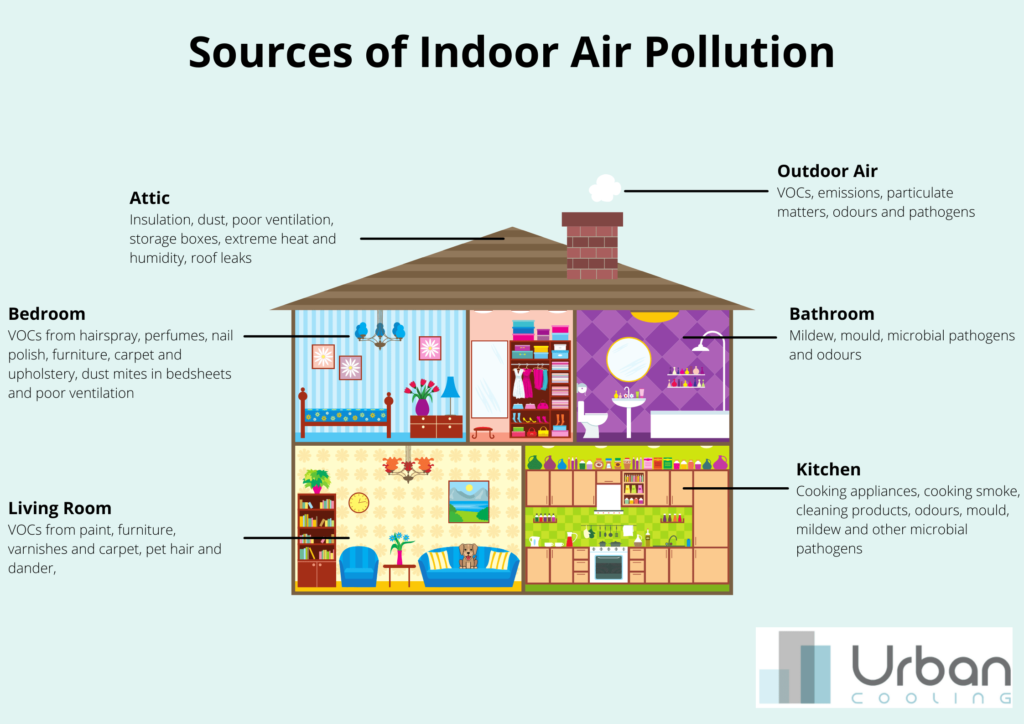
If you’re going to do one thing, I think the biggest deal is NOT burning things inside.
So, if you can, no gas cooking.
This below is from USA – but gives a good visual idea – with more UK details here.
If you must use a gas hob, use the back burners. And saucepans that are the right size – NOT so small that you can see the flames lapping outside.
And plenty of open-window ventilation, continuing after you stopped cooking – there’s recent evidence that extractor fans can make the situation WORSE!
